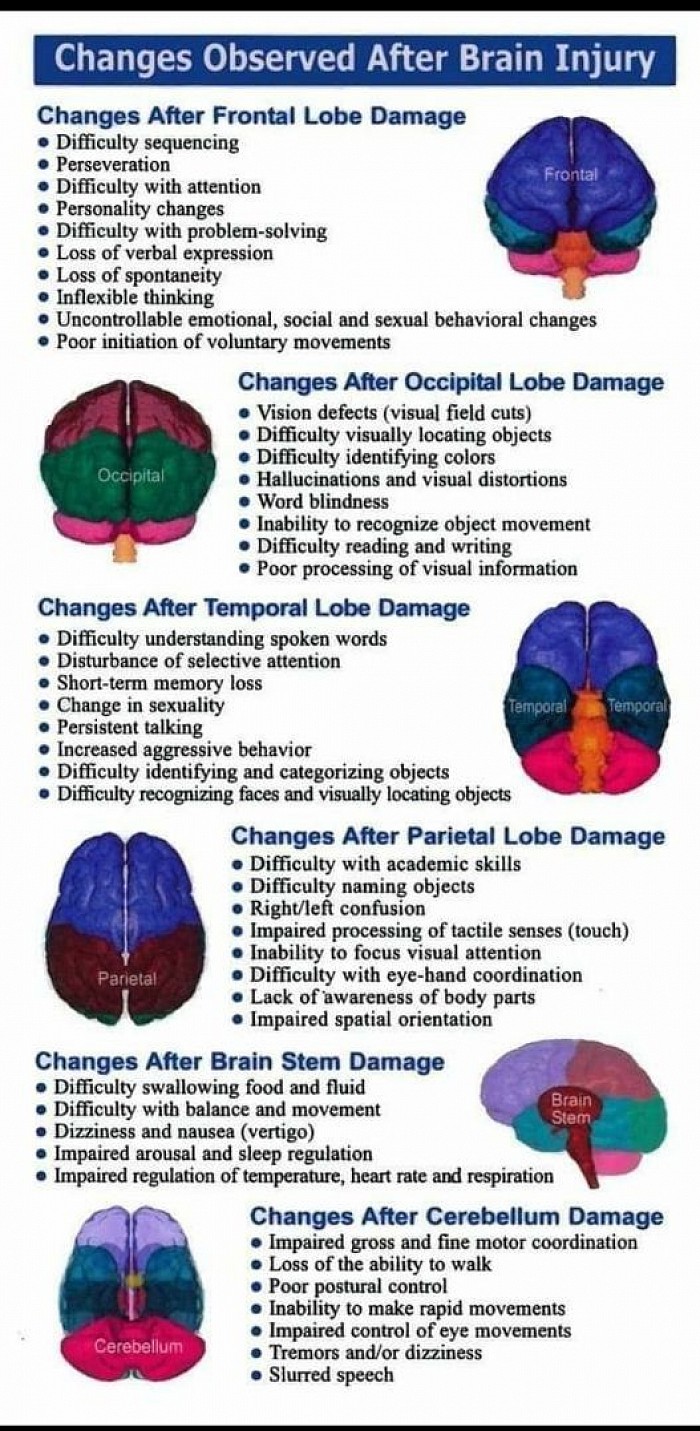Changes that happen with Dysexecutive Syndrome
Cognitive symptoms
A major challenge for those with Dysexecutive Syndrome is planning, anticipating and reasoning. It becomes difficult to assess and manage what before could be simple tasks at work and home, but have become obstacles in life.
People with Dysexecutive Syndrome often have a short attention span. They find it hard to focus on a subject, and then when they have found their focus they are reluctant to let go of that focus because of the fear of the consequences. Following a narrative in the news, in a screened drama or reading a novel becomes impossible. Remembering who characters are in a string of information, such as in a story, is bewildering. At times in a group discussion they lose track of what is being said, and this can lead to embarrassment. We find it hard to follow conversations. For those who have employment it makes their working life often impossible.
This difficulty at following social interactions is one of the reasons why people with Dysexecutive Syndrome can feel isolated and withdraw from friendship and social groups.
Behavioural changes
Some who have Dysexecutive Syndrome experience, and demonstrate, very different behaviours to those they did before their traumatic brain injury. That they seemingly have no control over these behaviours is very distressing
Some changes are a result of losing their social brake: that part of thinking that stops people from saying or doing certain things because they know it will upset or offend others. People with Dysexecutive Syndrome lose the ability to always discern what is wise, polite, kind and compassionate. It can sometimes be a challenge to be part of a group or a social situation, to obey conventions and social norms. Behaviours and speech may become spontaneous and uncontrollable, and losing impulse control may have unfortunate, distressing and undesirable consequences. People may exhibit disproportionate stubbornness, aggressive and selfish behaviours that are quite unlike the person who once was.
Someone with Dysexecutive Syndrome can find it hard to focus and latch onto a task, then equally difficult, struggle to unfocus and stand back. This can demonstrate itself in repetitive, obsessive behaviours.
Sometimes, people with Dysexecutive Syndrome lose a sense of proportion and do things inappropriately. It isn't that they do things that are particularly abnormal, but that they can do them when it would be unwise or unusual to do them. Checking a mobile 'phone in the middle of a funeral service, abruptly changing the subject of conversation to what they want to discuss than following the thread of others, being stimulated to do or say something spontaneously outside the context of where and when it is happening.
People with Dysexecutive Syndrome can demonstrate behaviour that is similar to obsessive and compulsive behaviour. They get fixated on a task, a thought, a habit, and struggle not only to shift from it, but to recognise it is a problem to themselves and also others. Sometimes people persist in following through with a task when it has been completed, as though they aren't satisfied it has been completed.
Emotional changes
The impact on the emotions of someone with Dysexecutive Syndrome can be very profound and extremely hard to accommodate. It makes some people wonder if they are going insane, not only because they feel so different they don't recognise themselves, but because the emotional changes are like being ambushed at times.
Feelings may rise to the surface and be hard to control and manage.
It is common for someone with Dysexecutive Syndrome to experience changes in following ways:
Anger
Excitability
Tearfulness (being "labile")
Sadness
Frustration
Irritability
Laughter
Obsessions
Withdrawal
Restlessness
These feelings can lead to extreme distress, especially if people don't know why they feel them. Somethings they result in confrontations, confusion, isolation and depression.
Anger: this doesn't necessarily mean proportionate justifiable anger. It can mean disproportionate and unreasonable anger, both from why anger has been triggered and the degree of anger experienced/expressed.
Excitability: someone with Dysexecutive Syndrome can become disproportionately excited about something and appear unreasonably agitated
Tearfulness: this is common with some who have Dysexecutive Syndrome, and for no reasonable cause can find themselves tearful spontaneously
Sadness: this is different from depression and is an overwhelming sense of sadness for no particular reason
Frustration: at the same time as finding it hard to make sense of life, having to navigate it while no one else realises there are major things happening that are wrong is extremely frustrating. Sometimes this simply explodes into anger.
Irritability: one minute everything is fine and the next it isn't for no particular reason, and that comes out in being irritable
Laughter: sometimes laughter comes and simply goes on and on beyond the point when ordinarily you would have stopped laughing
Obsessions: someone with Dysexecutive Syndrome may develop and display obsessional behaviour they can't control. It may demonstrate in acquisition, emotional fixations, productivity, or repetitive behaviour.

